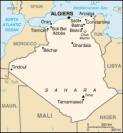
-Taylor Kirk
Strenuous U.S. efforts to encourage free-trade agreements in Latin America would lead one to believe that the election of a pro-CAFTA Nobel Peace Prize winner in a friendly Central American country would merit an article or two in the main stream U.S. press. One would be mistaken.
Today former Costa Rican President Oscar Arias returned to power with 45% of the vote, enough for him to avoid a runoff. So far (I write this at 10:15pm) Reuters is the only English-language source covering the event, and I was only able to find that article after Googling Costa Rica in the news section. The very next article that sprang up was on luxury condos in Guanacaste.
Of course, anyone that can read Spanish could visit
La Nacion (CR) for the latest results, if they were even aware that the election was taking place today. However, U.S. coverage of Latin America is dominated by Hugo Chavez' latest antics and the threat of Daniel Ortega returning to power in Nicaragua.
One of the effects of 9/11 was that U.S. citizens began to notice the world beyond our borders, and to take a greater interest in foreign affairs. Though primarily focused on events in the Middle East, the consumption of public radio, international publications,
and television coverage of world events skyrocketed, bringing new perspectives and information about world events to our living rooms. This also brought a hope, however tentative, that increased international awareness might make the U.S. a smarter nation that might develop a smarter foreign policy.
As I write this, the three headlines on CNN.com's section for the Americas are 'Brazil: 3 Crushed in Rush to Get Autographs', 'Washington: U.S. Kicks Out Venezuelan Envoy', and 'Venezuela: Hamas to Tour South America'. Apart from being almost comical, "The World's News Leader" has demonstrated that U.S. public interest in Latin America is confined to the sensational. Perhaps if Arias were a militant leftist, or if the elections were marred by violence, CNN would find it fit to cover. As it stands, the U.S. public will remain unaware that a successful election in a marvelous Central American country just changed the course of that region's history.
Update: Today coverage of the event is much more extensive, especially focusing on the closeness of the election. While
La Nacion still has the candidates separated by almost 9,000 votes and a quote from Arias que 'confia en la victoria', the
Reuters syndication has Arias saying that he 'cannot claim victory yet'.
Update II: Looks like I and the rest of the world called it too early, but I'd like to make it clear that my original point still stands. I was very disappointed Sunday to see the lack of coverage while the election was ongoing. The latest from
La Nacion says that with 88.11% of the votes counted, Arias' lead has narrowed to 3,647 votes. I like the quote from Solis that 'qualquier cosa puede ocurrir' en la eleccion, as if we were not aware of that :D. I would also like to make everyone aware that the "
World's News Leader" has finally posted the (now outdated) circulating Reuters article, though it comes AFTER the headline about how Cuba is planning a massive anti-US rally. Sensationalism anyone? Congrats CNN.
Update III: Costa Rica is on the main page of
Wikipedia today. I love the wikis.
latin america, central america, costa rica, oscar arias
 -Contributed by Erwin Cifuentes. An op/ed article in the Washington Square News points out the lack of “sustainability” as to why the ban against Coca-Cola at NYU, has been ineffective in causing real change. “The core of the ‘Killer Coke’ campaign isn’t murders in Colombia, but the insanity that a cost-benefit analysis could justify having workers killed to keep others from demanding better working conditions. That central principle needs to be generalized and made explicit” according to the article. (NYUNews)
-Contributed by Erwin Cifuentes. An op/ed article in the Washington Square News points out the lack of “sustainability” as to why the ban against Coca-Cola at NYU, has been ineffective in causing real change. “The core of the ‘Killer Coke’ campaign isn’t murders in Colombia, but the insanity that a cost-benefit analysis could justify having workers killed to keep others from demanding better working conditions. That central principle needs to be generalized and made explicit” according to the article. (NYUNews)


















 -Contributed by
-Contributed by 

